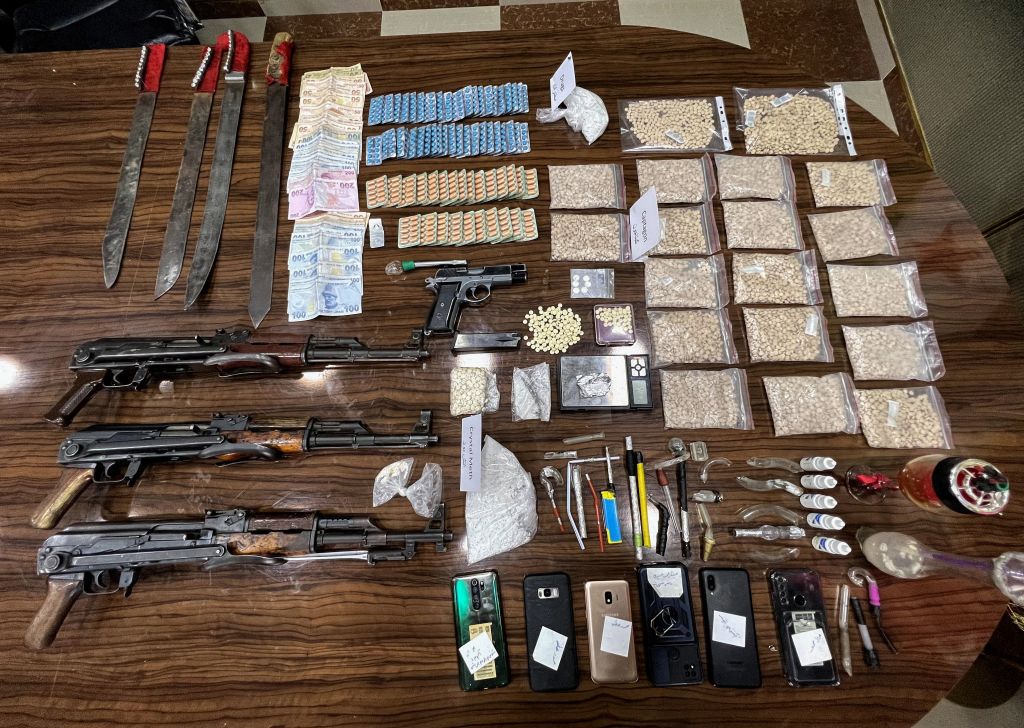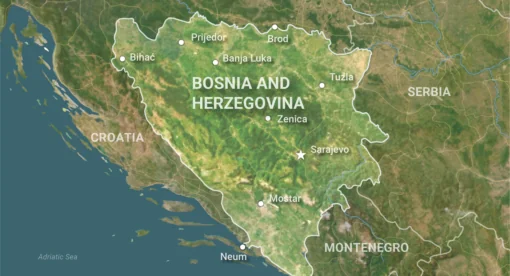Executive Summary
Amphetamine-type stimulants, marketed as “captagon,” continue to flood the Mediterranean-Gulf region. At least 370 million pills were seized in 2022 throughout the region, representing only part of the total market as countless captagon pills went unreported or undetected by law enforcement agencies. The hike in captagon’s prevalence has been detrimental to an already volatile region, exploiting gaps in governance, security, and public health. While consumer countries are left to struggle with captagon’s health and security impacts, the drug is empowering the main supplier and sponsor of the industry: the regime of Syrian President Bashar al-Assad.
The world is scrambling to respond to this crisis. Regional consumption hubs including Saudi Arabia, Jordan, Iraq, and the UAE are enhancing their interdiction capacity; legislators in the U.S. are demanding an interagency counter-captagon strategy; and Western countries are announcing sanctions on suppliers in Syria and, to a lesser extent, Lebanon.
While evidence of regime-aligned participation in the captagon trade builds, a relatively consistent narrative has emerged within regime-controlled areas. This report presents the first comprehensive analysis of that narrative domestically and internationally and compares it with regime actions on the ground.
This report analyzes all articles with the word “narcotics” in the title in the official Syrian Arab News Agency (SANA) from 2015 to 2022. This data is supplemented by Syria’s formal submissions to the United Nations Office on Drug and Crime (UNODC), statements from regime officials, and the death sentences related to narcotics and announced in the gazette. To examine policies on the ground, the authors qualitatively analyze the existing literature and track reported seizure announcements from other countries in the region during 2021 and 2022, where the seizing authority formally and explicitly identified the country or region of origin of captagon shipments.
Over the last three years, there has been a notable rise in captagon shipments directly tied to laboratories, ports, smuggling networks, and packaging materials based in regime-held areas. This has been accompanied by accumulating evidence of regime-aligned security officials and individuals supervising industrial-level captagon production in regime-controlled areas. Yet the Assad regime has steadily argued there is no captagon production whatsoever within its controlled areas. Furthermore, while the
Syrian government reports a high number of seizures compared to other countries in the region, the amounts seized are much smaller. As captagon has become a top agenda item during normalization discussions with the regime, the U.S. and its partners need to recognize the disparity between the Syrian regime’s anti-narcotics narrative and its actions.
Key Takeaways
■ The Syrian regime’s relatively consistent counternarcotics narrative has been a denial of captagon production in the areas it controls, with little being smuggled across the border, supplemented by a cosmetic series of small-sized seizures.
■ The regime’s narrative contrasts starkly with accumulating evidence of industrial-scale production concentrated well within its areas and evidence of regime- and Hezbollah-aligned individuals systematically involved in supply and smuggling operations.
■ The regime will continue to take advantage of and weaponize the captagon trade as an “agenda item” in regional normalization, framing reported captagon seizures as a goodwill gesture and utilizing its agency over the drug trade to extract political and financial concessions from other countries.
■ It is futile to directly partner with the Syrian regime to counter the captagon industry, given that data suggests the government’s anti-narcotics rhetoric is designed to deflect attention from regime-aligned production, rather than effectively halt these markets.
Policy Recommendations
■ The U.S. and its partners should discourage countries in the region from tying normalization with Syria to a reduction in narcotics supply, as the regime itself remains the main supplier of captagon with little incentive to reduce production and smuggling.
■ The U.S. and its partners should encourage regional actors to coordinate on counter-captagon
policies. This can be done by supporting the establishment of a regional task force aiming to lower the supply and demand of narcotics.
■ Keeping low-level communication channels with the Assad regime open can be useful for understanding how it operates and interacts with the sector, but high-level cooperation should not be considered as the Syrian regime has not indicated any change in behavior and is incentivized to continue industrial-level captagon production and trafficking.








